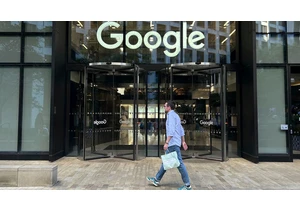Tuesday’s news that Google would acquire the Israeli cybersecurity firm Wiz for $32 billion was remarkable on several fronts. The deal, assuming it closes, will be the largest acquisition in Google’s history. And it’s the biggest exit in Israeli history.
“Becoming part of Google Cloud is effectively strapping a rocket to our backs,” Wiz CEO Assaf Rappaport wrote in a blog post. “[I]t will accelerate our rate of innovation faster than what we could achieve as a stand-alone company.”
It also marks the close of a fast-paced, five-year chapter for the company. Founded in January 2020 by Assaf Rappaport, Yinon Costica, Roy Reznik, and Ami Luttwak, Wiz grew quickly, as the pandemic forced companies and workers online and cloud servers exploded in popularity. And as hybrid work has continued, so has the company’s expansion.
An IPO on ice
In just 16 months, Wiz became a unicorn, with a $1.7 billion valuation. By October 2021, its valuation had ballooned to $6 billion and by February 2023, that figure had jumped to $10 billion. Last May, the company raised $1 billion in funding, giving it a $12 billion valuation.
As Wiz’s fortunes rose, so too did its reputation. The company’s researchers have alerted the public to a number of cloud vulnerabilities in everything from Microsoft’s Azure cloud system to the cloud systems of Oracle and IBM. In January, it raised a red flag about DeepSeek, finding that the Chinese AI system had inadvertently exposed a significant amount of sensitive data.
The company has been on Google’s radar for some time. Last year, Alphabet offered $23 billion to acquire Wiz but was rejected. Instead, Wiz’s founders planned to pursue an IPO. “Saying no to such humbling offers is tough,” Rappaport wrote at the time in a memo seen by CNBC.
The move was a calculated gamble. Wiz officials were worried whether a takeover by Google would be approved by regulators, given the Federal Trade Commission (FTC)’s fixation on Big Tech at the time and Google’s own antitrust court battles then.
But the IPO market has hardly been welcoming to most tech companies for the past several years. Wiz aimed to hit $1 billion in annual recurring revenue before it filed for a public listing, which gave it some breathing room, but market conditions haven’t improved—in fact, have worsened in the past two months.
Between that stock market volatility and the change in White House administrations, which shifted regulatory sentiment, Wiz’s leadership began to reconsider its options.
Why regulators might let this one through
While Google is still facing a possible breakup following a verdict that found the company to be an illegal monopoly last August, Justice Department officials dropped the push for the company to sell off its AI investments. That could signal improved odds that Tuesday’s deal will not face the same level of antitrust scrutiny it would have in 2024.
Part of the secret to Wiz’s success is exactly why antitrust regulators might be amenable to the Google buyout. The company is a native multi-cloud platform. It works equally well on offerings from Google, Microsoft, Amazon, Oracle, and more.
That makes this both a security play for Google as well as an AI infrastructure one, as it can secure workloads across multiple platforms and doesn’t force customers to use Google Cloud.
“Wiz and Google Cloud are both fueled by the belief that cloud security needs to be easier, more accessible, more intelligent, and democratized so more organizations can adopt and use cloud and AI securely,” Wiz CEO Rappaport wrote in a blog post. “We both also believe Wiz needs to remain a multi-cloud platform, so that across any cloud, we will continue to be a leading platform. We will still work closely with our great partners at AWS, Azure, Oracle, and across the entire industry.“
The deal is expected to close in 2026, pending regulatory approval.
Chcete-li přidat komentář, přihlaste se
Ostatní příspěvky v této skupině

As Big Tech kicks off its quarterly earnings season this week, the industry’s bellwether companies have been thrust into a cauldron

Weeks ahead of his death, Pope Francis dedicated this month’s prayer intention to

Remember when TikTok went nuts for “Dubai chocolate”? Well, that fervor is now causing an international shortage of pistachios.
The trend took off in 2023 when food reviewer Maria Vehera

Google will confront an

Instagram has begun testing AI-powered technology designed to proactively identify accounts it suspects belong to teens—even if the user has listed an adult birthdate—and place them under special

Behind the curtain of generative AI breakthroughs and GPU hype, a quieter transformation is taking place. Data center architecture and its prowess have become a fierce battleground as AI models ex

Amid the video podcast boom, Netflix is making its own move into the space.
